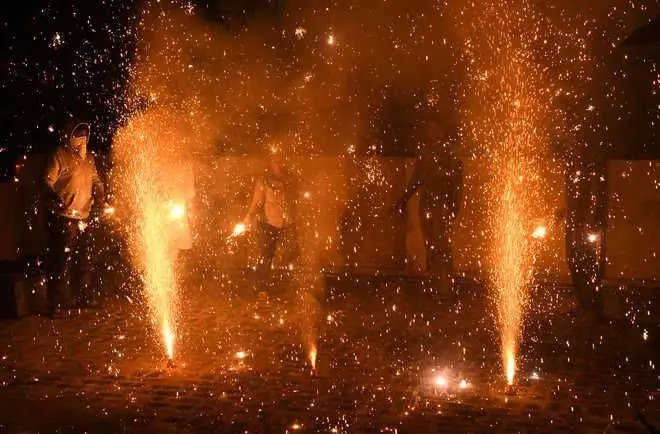Air Pollution: PM 2.5, PM 10 levels cross safe limits in Hyderabad post-Diwali
“The concentrations have increased with respect to PM 2.5 and PM 10 when compared to normal days,” stated the TSPCB in its report
By Anoushka Caroline Williams
Representational Image
Hyderabad: The Telangana State Pollution Control Board (TSPCB) released its latest Ambient Air Quality (AAQ) monitoring report for Hyderabad, revealing an increase in Particulate Matter (PM) levels, particularly PM 2.5 and PM 10, post-Diwali celebrations.
Before Diwali, the average PM 2.5 levels stood at 35 micrograms per meter cube, while after the festival, this surged to 119. Similarly, PM 10 levels increased from 85 to 188 during the same period, according to the TSPCB pollution monitoring bulletin.
“The concentrations have increased with respect to PM 2.5 and PM 10 when compared to normal days,” stated the TSPCB in its report.
Both PM 2.5 and PM 10, particles with diameters less than 2.5 microns and 10 microns respectively, are known lung pollutants. Elevated exposure to these particles is associated with exacerbated respiratory conditions like Asthma and Chronic Obstructive Pulmonary Diseases (COPD), leading to increased hospitalizations and emergency department visits.
The TSPCB is actively monitoring AAQ, including particulate matter, gases, and noise levels. Special monitoring for Diwali, in compliance with Central Pollution Control Board (CPCB) directives, has been ongoing from November 5 and will continue until November 19, as per senior TSPCB officials.
In addition to particulate matter, the monitoring system indicated a notable rise in sulphur dioxide (SO2) and oxides of nitrogen post-Diwali. SO2 levels increased from 6.2 to 12 micrograms per meter cube, while oxides of Nitrogen rose from 23.4 to 30.6 during the festival. The TSPCB commented, “Concentrations increased moderately when compared to a normal day and meeting the standards.”
The TSPCB also assessed noise levels, reporting an expected increase in residential areas during Diwali celebrations. Conversely, industrial and commercial regions experienced a decrease in noise levels.